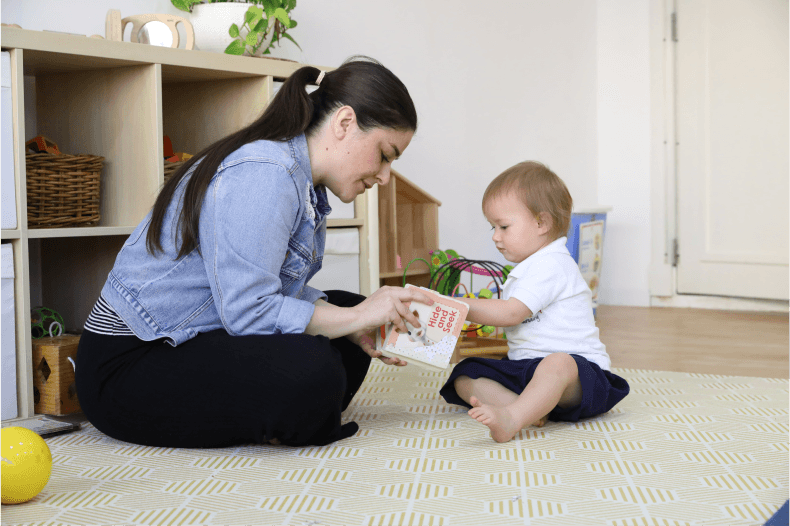Why Validating Your Child’s Feelings Matters
One of the most powerful ways to support your child’s emotional development is through validation—acknowledging their feelings without judgment or trying to fix them right away.
When we validate a child’s emotions, we help them feel seen, heard, and valued. This builds self-worth and deepens the parent-child connection. It’s like saying,
“I understand you. I’ve got your back.”
In Tough Moments, Connection First
During tantrums, meltdowns, or moments of defiance, validation helps children connect their emotions to their actions. Over time, this builds emotional awareness and regulation. Simply naming their feelings—“You’re really upset right now,”—can calm their emotional brain and open the door to problem-solving.
Trying to reason or discipline during distress usually fuels more resistance. Empathy calms; connection opens the door for cooperation.
How Daily Interactions Contribute to Language Development
Did you know that language development begins from the very first moments of life? Even seemingly simple interactions, such as playing peek-a-boo and singing nursery rhymes, are incredibly powerful. These “serve and return” exchanges – where you respond to your baby’s coos and babbles with smiles, sounds, and playful words – build strong foundations for their language skills.
Validation Lowers Conflict
If your child says, “But I want another cookie!” Rather than replying with “You’ve had enough—don’t ask again,”
try: “I know those cookies are delicious. It’s hard when you really want more and can’t have it.” Or if they resist brushing teeth:
Instead of “Stop whining and go brush,”
try: “You don’t feel like brushing right now. It’s not your favorite part of the day, huh?”
These shifts lower defensiveness and show your child you’re tuned in to how they feel—even when the answer is still “no.”
Keep It Simple and Curious
Validation isn’t about fixing or approving behavior—it’s about understanding the feeling behind it. If your child throws a toy, rather than saying, “You shouldn’t do that!”
you might say, “Looks like you’re really frustrated. Want to tell me what’s going on?”
This opens the door to conversation and teaches your child that emotions are manageable—even big, hard ones.
All Emotions Are Okay
Children need to know that it’s okay to feel anything—even jealousy, disappointment, or anger. When we accept their emotions without criticism, we help them feel secure, understood, and more likely to express themselves in healthy ways.
Final Thought
Validation doesn’t mean giving in—it means tuning in. It’s a powerful way to support your child’s well-being, build trust, and create a calmer, more connected home.



